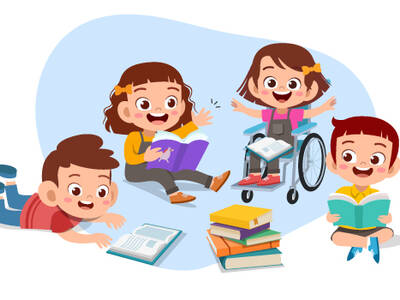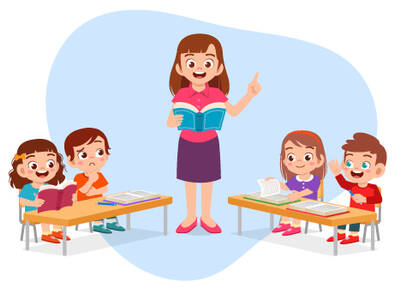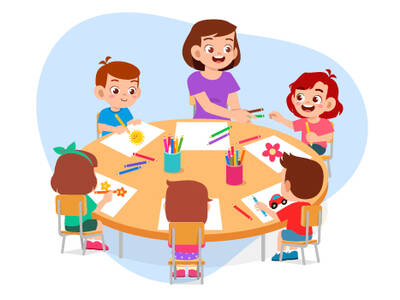Introduction
In the context of the project "Fairy Tales", Defence for Children Italy rolled out activities that aimed to recognise, understand and challenge the gender stereotypes, which can be found in traditional fairy tales. The activities engaged boys and girls aged between five and seven years old, as well as teachers and parents. Together, they explored situations where opportunities or obstacles arise for the expression of the diversity and uniqueness of every person. The project was implemented in collaboration with the Association ‘La Stanza’, which has been working in Genoa for many years in support of the development of children and youth through intercultural and environmental pedagogy, artistic forms of expression and cultural programmes. The Association has long-standing expertise in organizing workshops, teacher training courses and family programmes.
The project activities were carried out in close collaboration with the teachers of two classes of the primary school of the Convitto Nazionale Colombo in Genoa. The school participated in the project as an associate partner and organised meetings with the parents of the children who took part in the activities. The project comprised also training courses for teachers, which, at the time of writing this report, are still in progress. These meetings proved to be very useful and valuable to discuss and validate the project’s approach together with the teachers and other professionals from the socio-educational field.
The project was conceived on the basis of social learning theories and builds on the assumption that children acquire social stereotypes and cultural symbols also from the stories that they hear and listen to or that they see performed or in movies from early childhood. Gender prejudices engrained in the content, language and images of fairy tales for children can lead children to accept these stereotypes and to perpetuate them unconsciously.
Even though there was consensus on the approach, many questions emerged in relation to the theoretical basis and the working hypothesis for the project activities. A key question was how to address these sensitive matters with boys and girls of the targeted age group. These questions will be discussed in more detail in the following sections.
This report provides a synthesis of the project activities and the experience made in Italy, while also offering pedagogical insights on how to address questions related to the promotion of gender equality with children aged between five and seven years old.
After a brief overview of the most relevant national laws, policies and programmes promoting gender equality in Italy, i.e. the normative framework of the context in which the project activities took place, the report proceeds to describe the theoretical framework and rationale that guided the activities. These points of reference create a roadmap for the steps that were considered essential to build a path that made sense, in relation to our history and our heritage of knowledge and skills.
Subsequently, the structure and methods of the “Fairy Tales” workshops held in Italy are described.
The Italian Constitution provides for the equality of all citizens as one of its fundamental values. The right to equality…
The working group that carried out the project activities in Italy, which was tasked to address such complex and sensitive…
The first exploratory phase with children, teachers, and parents during spring 2019 allowed us to focus and refine the questions…
In light of the overall objectives of the project, the working methods were selected with due consideration to the joint…
The activities carried out, as described above, have generated an important opportunity to translate the challenging pedagogical…










